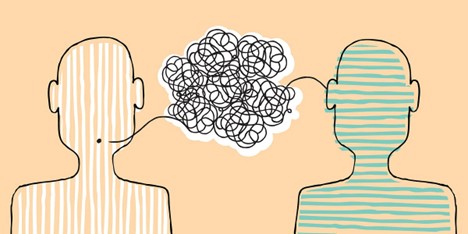Self-reflection is a powerful tool for personal growth and development. It allows individuals to pause and consider their thoughts, feelings, and actions, leading to deeper self-awareness and understanding. In today’s fast-paced world, taking the time for self-reflection can be transformative, helping us navigate life’s challenges with greater clarity and purpose. This article explores the importance of self-reflection and offers practical tips for incorporating it into your daily routine.
1. Understanding Self-Reflection
Self-reflection involves looking inward and examining our experiences, motivations, and behaviors. It is a conscious effort to analyze how we respond to various situations and how our actions align with our values and goals. By engaging in self-reflection, we can identify areas for improvement, celebrate our successes, and make informed decisions about our future. This process fosters a deeper understanding of ourselves and enhances our emotional intelligence.
2. Promoting Self-Awareness
One of the key benefits of self-reflection is its ability to promote self-awareness. By taking the time to reflect on our thoughts and feelings, we gain insights into our strengths and weaknesses. Self-awareness is essential for personal development, as it allows us to recognize patterns in our behavior and understand how they impact our lives and relationships. This awareness is the foundation for meaningful change
3. Enhancing Decision-Making
Self-reflection plays a crucial role in enhancing decision-making. When we reflect on our past choices, we can learn valuable lessons that guide our future actions. By evaluating the outcomes of our decisions, we can better understand what worked and what didn’t. This analytical approach helps us make more informed choices, reducing the likelihood of repeating mistakes and fostering greater confidence in our ability to navigate challenges.
4. Supporting Emotional Well-Being
Engaging in self-reflection can significantly support emotional well-being. It provides an opportunity to process emotions, especially during difficult times. By reflecting on our feelings, we can better understand their origins and how they influence our behavior. This understanding allows us to address unresolved emotions and develop healthier coping mechanisms. As a result, self-reflection can lead to improved mental health and resilience.

5. Encouraging Goal Setting
Self-reflection is a powerful tool for setting and achieving goals. When we take the time to assess our values and aspirations, we can create a clear vision of what we want to accomplish. This clarity enables us to set specific, measurable, achievable, relevant, and time-bound (SMART) goals. Regularly reflecting on our progress helps us stay accountable and motivated, ensuring we remain aligned with our objectives
6. Building Stronger Relationships
Self-reflection can also enhance our relationships with others. By understanding our own emotions and reactions, we can communicate more effectively and empathize with those around us. This heightened awareness fosters healthier interactions, as we become more attuned to the needs and feelings of others. When we reflect on our relationships, we can identify areas for improvement, leading to deeper connections and a more supportive social network.
7. Creating a Habit of Self-Reflection
To fully benefit from self-reflection, it’s important to make it a regular practice. Here are some strategies to incorporate self-reflection into your daily routine:
· Set Aside Time: Dedicate a few minutes each day to self-reflection. Whether it’s in the morning or before bed, find a quiet space where you can focus on your thoughts without distractions.
· Use Journaling: Writing in a journal is a powerful way to facilitate self-reflection. Document your thoughts, feelings, and experiences, and explore how they relate to your goals and values.
· Ask Yourself Questions: Engage in introspective questioning. Consider prompts like, “What did I learn today?” or “How did I handle challenges this week?” These questions encourage deeper analysis.
· Practice Mindfulness: Mindfulness techniques can enhance self-reflection. By being present in the moment, you can observe your thoughts and feelings without judgment, gaining insights into your inner self.
8. Overcoming Barriers to Self-Reflection
While self-reflection is beneficial, it can sometimes be challenging. Common barriers include a busy lifestyle, fear of confronting difficult emotions, or a lack of self-discipline. To overcome these obstacles:
· Prioritize Self-Reflection: Treat it as an essential part of your daily routine, just like exercise or healthy eating.
· Start Small: If self-reflection feels overwhelming, begin with short sessions. Gradually increase the time as you become more comfortable with the process.
· Seek Support: Share your self-reflection journey with a trusted friend or mentor. Discussing your thoughts can provide new perspectives and encouragement.
9. The Long-Term Benefits of Self-Reflection
The long-term benefits of self-reflection are profound. As you cultivate the habit, you’ll notice improvements in various aspects of your life, including greater self-confidence, enhanced emotional regulation, and stronger relationships. Over time, self-reflection can lead to a more fulfilling and purpose-driven life, as you align your actions with your core values and aspirations.

Conclusion
Self-reflection is a vital practice for personal growth and well-being. By promoting self-awareness, enhancing decision-making, and supporting emotional health, self-reflection can transform your life. Incorporating this practice into your daily routine is a valuable investment in your future. Remember to be patient with yourself as you navigate this journey of self-discovery. The insights gained through self-reflection will pave the way for a more intentional and fulfilling life.




